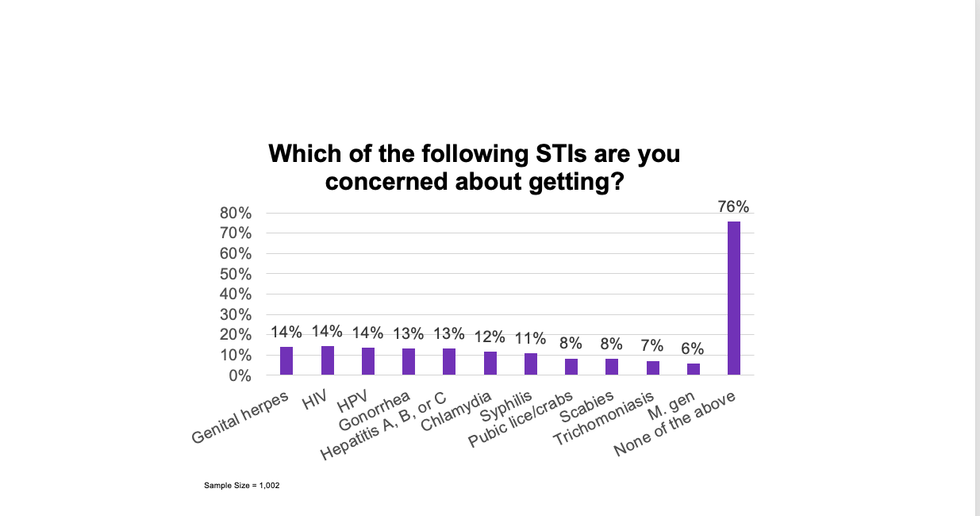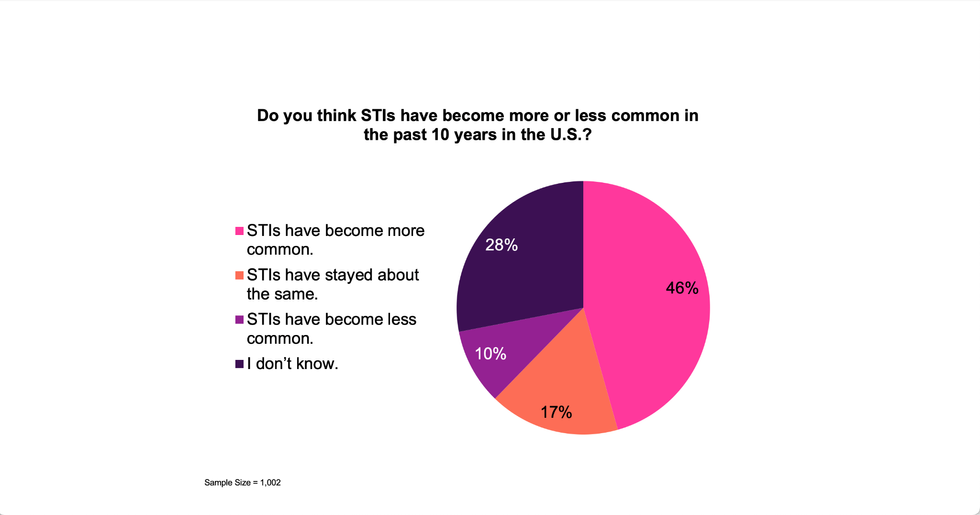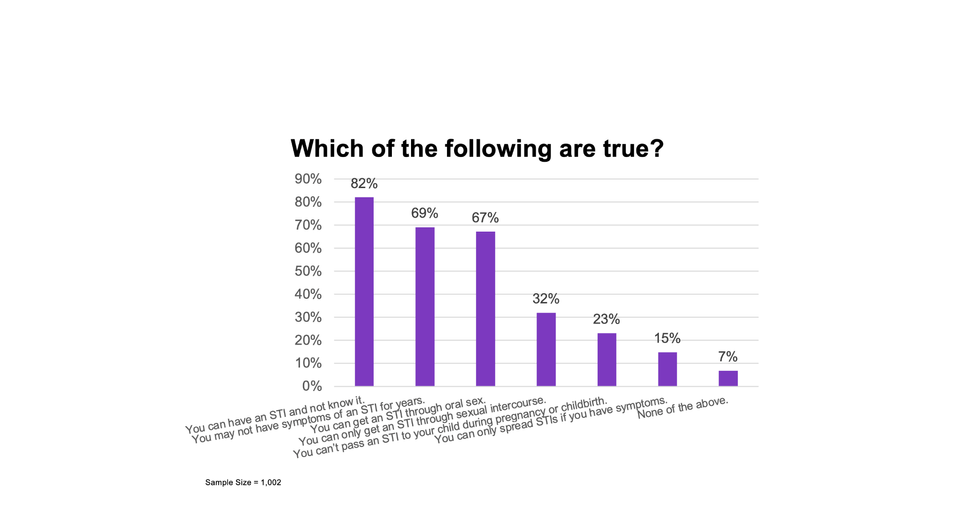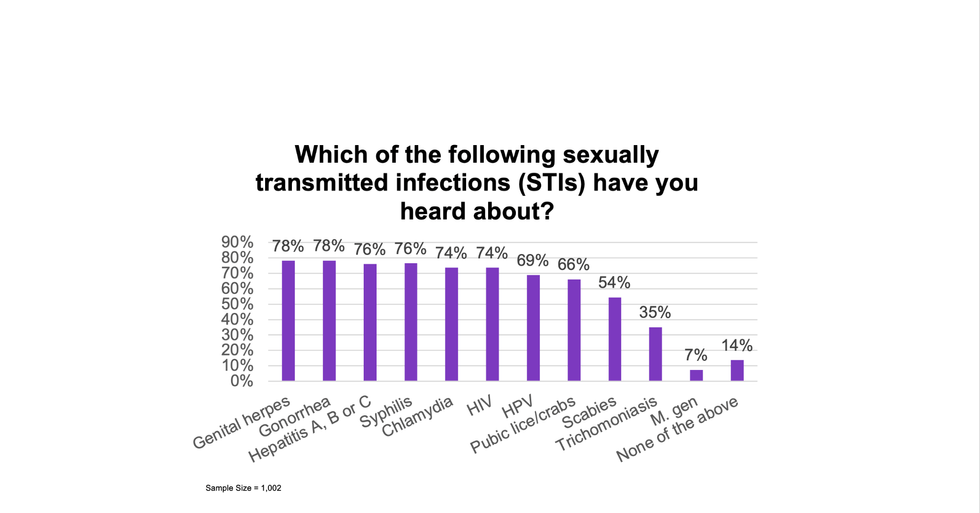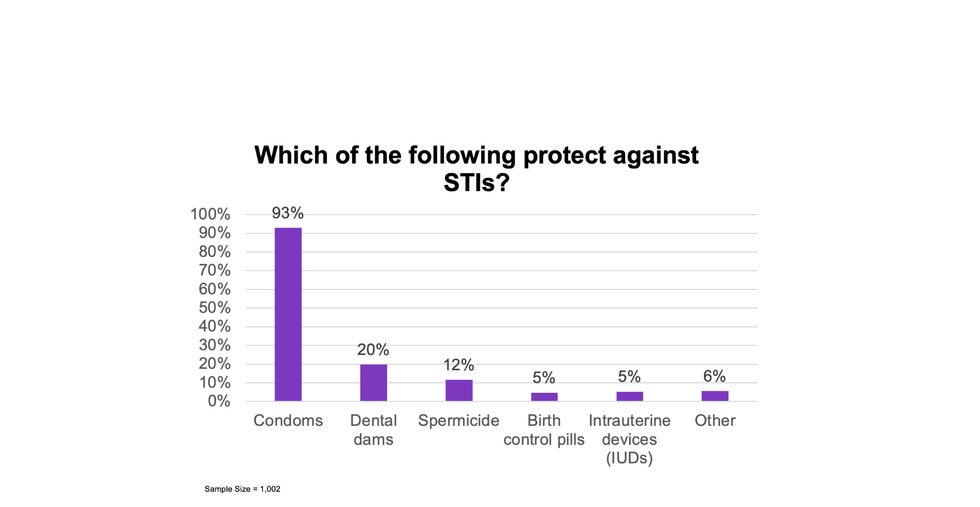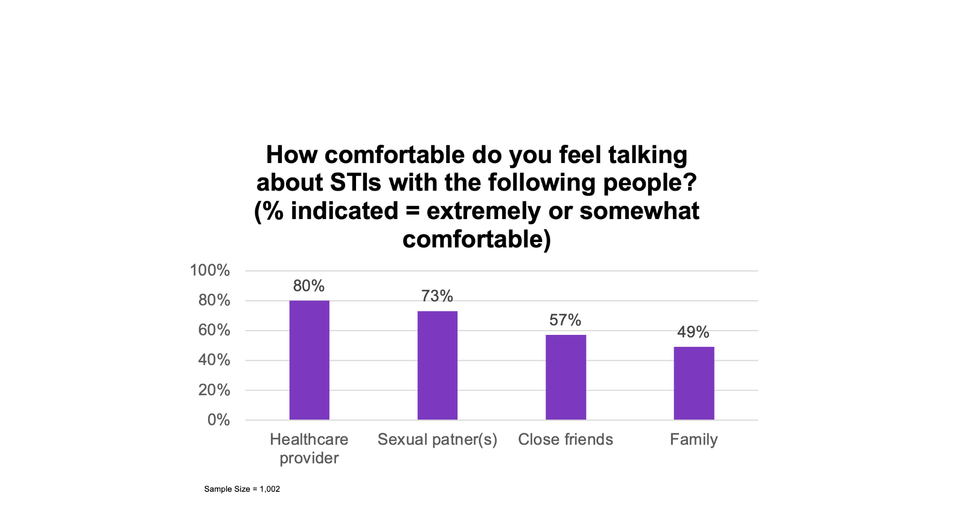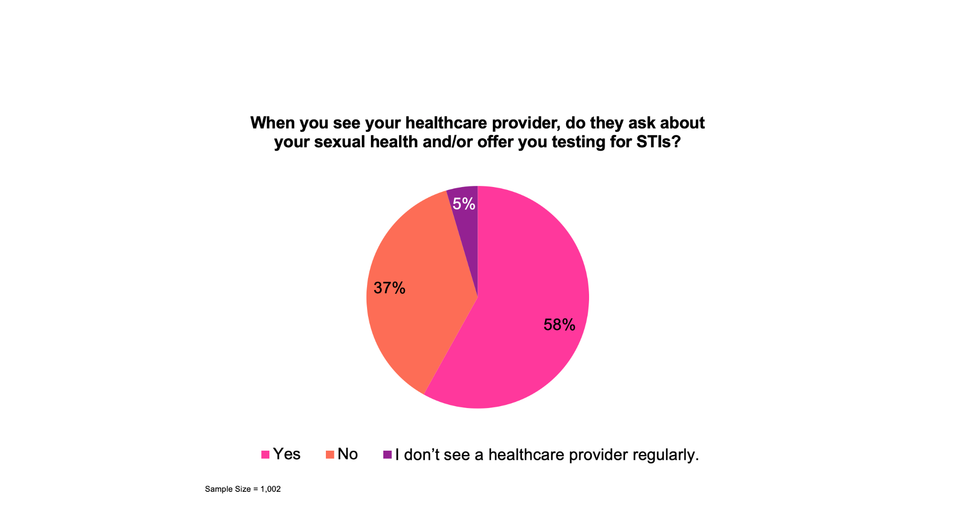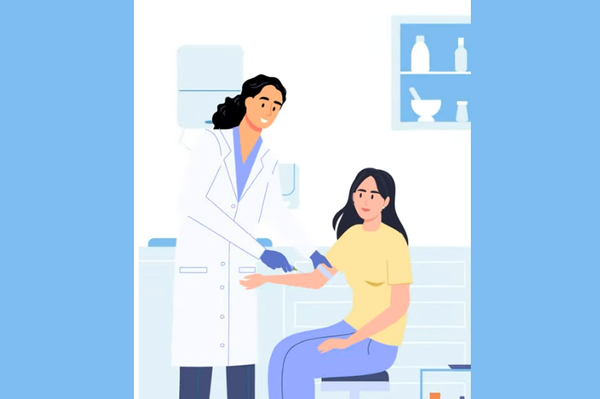Let’s talk about sex. OK, now that we got your attention, we mean sexually transmitted infections (STIs).
Wait, don’t go! We get it. No one wants to think about STIs, but rates have increased in recent years. That means, if you’re having sex you’re at risk.
In our new survey of women and people assigned female at birth ages 35 to 64, we found that more than half of the respondents didn’t know about the rise in STIs. And nearly 8 out of 10 respondents said they weren’t concerned about getting an STI.
“Gonorrhea, chlamydia and, especially, syphilis have risen over the recent years,” said Tomeka Roberts, M.D., an OB-GYN and a member of HealthyWomen’s Women’s Health Advisory Council. “I see a lot of people getting relaxed about condom usage. This may be due to increased access to things like birth control pills and IUDs. Also with Covid, there has been a reduction of people coming to the doctor. This has improved, but we still see a decrease in screening.”
Although nearly 9 out of 10 respondents said they regularly see their healthcare provider (HCP), nearly half said their HCP doesn’t ask about STI testing and sexual health.
Read: 6 STIs You Need to Know About >>
“I know I, as a gynecologist, ask my patients if they would like an [STI] screening but some primary care providers may not ask the question,” Roberts said. “And even if the patient tells me no to an [STI] screening I ask more about their sexual history to see if they really need one, and I will have another conversation with them again emphasizing the importance.”
Eight out of 10 of our respondents felt comfortable talking to their HCP about STIs, but for those who don’t, stigma may play a part in avoiding the conversation. But Roberts noted that most HCPs want you to ask questions and speak up about sexual health. “We see a wide variety of patients every day, so you will not be alone when discussing your sexual health,” she said.
Here’s more on the key findings of our STI awareness survey:
76% of respondents said they were not concerned about getting an STI
If you’re having sex, you’re at risk for STIs. The younger respondents and those with two to five sexual partners were the most concerned about getting an STI.
Less than half of respondents knew STIs have become more common in the U.S. over the past 10 years
Younger respondents were more likely to know about the increase in STIs compared to the other respondents.
Like syphilis, certain myths about STIs are still hanging around
About 15% of respondents said you can only spread STIs when you have symptoms. This is not true. Overall there was a lack of knowledge about common STIs and how to prevent STIs.
Some respondents have never heard of common infections like trichomoniasis
Only 35% said they’ve heard of trichomoniasis, and only 7% have heard of Mgen — an STI that can cause infertility if left untreated. These common STIs can cause serious health problems and often have no symptoms.
Almost all respondents knew condoms protect against STIs ….
It’s great to see condoms getting the love they deserve.
… but some respondents thought other birth control methods protect against STIs (they don’t)
Some respondents said spermicide (12%), birth control pills (5%) and IUDs (5%) offer STI protection, which isn’t true. These methods of birth control can help protect against pregnancy but don’t protect against STIs.
85% knew where to get tested for STIs
Respondents with two to five partners were more likely to know where to get tested for STIs compared to respondents with one or no partner.
Most respondents said they feel comfortable talking about STIs with their HCP …
It’s nice to see a majority of participants (80%) reported feeling open to talking about STIs with their HCP. It’s also cool that almost half of the respondents don’t think it’s TMI to talk about STIs with family members.
… however, actually having the conversation is another story
More younger respondents said their HCP asks about sexual health and offers STI testing compared to the other respondents.
Overall, the lack of knowledge about common STIs means more education is needed to help people make informed decisions about their health. “Women should talk with their healthcare provider because some STIs do not have symptoms,” Roberts said.
What you don’t know can hurt you when it comes to your sexual health.
This resource was created with support from Hologic,a HealthyWomen Corporate Advisory Council member.


